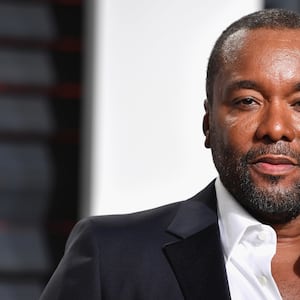In this special series, LGBT celebrities and public figures talk to Tim Teeman about the Stonewall Riots and their legacy—see more here.
Michelangelo Signorile
Host The Michelangelo Signorile Show on Sirius XM Progress; journalist, author, activist
When and how did you first hear about the Stonewall Riots, and what did you make of them?
I grew up in New York City, and I don't remember anything about the actual events during that time and in the aftermath as a child and in my early teens. I think there's some mythology around just how much attention the riots got. It was much less in the time. But what did get attention was the gay liberation movement, the new edge of it that the riots spawned, and I certainly remember that later as a teenager and in college, where I learned more about the riots.
What is the Riots’ significance for you now?
Stonewall marks a turning point and is an iconic moment that built on other examples of people standing powerfully and passionately against discrimination and brutality. You can't separate this out from moments in the black civil rights movement, the women's movement, and the anti-Vietnam war movement of the time. But it also served as a model for future generations.
As someone organizing in ACT UP two decades later in my late twenties, we looked back on the time as an example of the resistance we needed to embody, just as many people are looking back now.
No serious activists would actively promote anything like a “riot” now, which with Stonewall was a spontaneous action that erupted in a given place and time in response to brutality. But the passion, the anger, and putting your body on the line—in non-violent civil disobedience—is what we take from the events and the time.
How far have LGBT people come in the last 50 years?
We've come enormously far, there's no question about that. Few who were at the Riots would probably have imagined marriage equality as the law of the land and a gay presidential candidate being taken seriously 50 years later. Or, maybe some actually did! Maybe it was letting their imaginations think the seemingly impossible that drove them.
Whatever the case we've come far, and fast. However, this movement has been marked by extraordinary backlash—and that was the case before Stonewall, which was a turning point, not the beginning of the movement for LGBTQ equality and acceptance, which goes back decades before, even if it was much quieter.
I'd argue in fact that Stonewall was another moment in which we stood up to the backlash, after having previously believed we'd made it to some point and became complacent.
That has happened many times since Stonewall too, and is happening right now too with people previously having believe we'd won everything with marriage equality realizing the backlash and rolling back of rights in the Trump era is fierce, and it's time to stand up strong again.
What would you like to see, LGBT-wise, in the next 50 years?
There is so much work to do. Children should not grow up in a society in which their gender and their sexual orientation is decided or assumed, either by doctors or their parents, and then they have to struggle through the world and come out.
Many things have to happen before we get there. But the one thing I hope that we learn from Stonewall and all the other moments of resistance is that we can never be complacent. It's when we become complacent that the backlash sets in.


